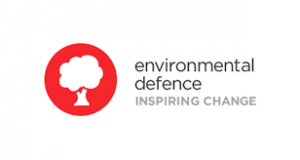 Use the links below to find information about upcoming elections in the U.S.: primaries and general elections, as well as any special elections or runoffs for your state, county/municipality, or congressional district.
Use the links below to find information about upcoming elections in the U.S.: primaries and general elections, as well as any special elections or runoffs for your state, county/municipality, or congressional district.
Please verify that you are still registered to vote via your Secretary of State’s election division or your County’s elections office (click on one of the top links under your state name, below). Ideally, check your status at least once before each election, preferably more than a month before election day, so that you still have time to correct any problems. Confirm that all of your registration information (name, address, party preference, SS/ID #) is correct and current (i.e., it hasn’t been purged or altered). If you have moved since you last registered, you need to re-register to vote.
Also follow the groups listed in this post on social media for ongoing updates, and please share voting links and info. for your state with your friends (online and off). Many states have changed the dates of their primaries (and Early Voting periods), or are changing their rules related to absentee/mail-in ballots. Periodically check for and spread the word about any changes!
To start off, here are some general resources that are useful for people across the United States. For more specific, state-by-state information and links, scroll down to the next section to find your state (listed in alphabetical order).
General/Nationwide Resources:
- Non-partisan hotline to call for voting questions, or to report any problems:
866-OUR-VOTE (866-687-8683)
Election Protection (866ourvote.org) - Vote.org
- Vote411
- Rock the Vote
- Vote Riders (for info on voter ID requirements in each state, or for help in getting ID)
- Ballotpedia.org / Vote Smart / Factcheck.org / PolitiFact
- Overseas Vote
- Common Cause
- League of Women Voters
- Fair Fight
- When We All Vote
- Spread the Vote
- Campus Vote Project
- All on the Line
- Mobilize
- Vote Save America
- Protect Our Votes (see their useful graphic at the very bottom of this post)
Also see (and subscribe to) our Twitter list of Voting-related groups and experts
Our other voting posts include additional links and suggestions:
- NEW: Voting and Elections: Links, Groups, and a Personal Plea
- Make It Count: How to Protect Your Vote and Everyone Else’s
- Voting and Election Tips and Resources
- Get-Out-The-Vote, Election Security, and Vote Protection Opportunities
- Posts Related to Democracy, Voting, Elections, Social Change
State-specific Election/Voting Links:
In addition to using the links provided under your state name (below), be sure to look up your County’s Elections office/Registrar/Board. You can contact them (or your Secretary of State’s office) to verify that you’re still correctly registered, and to ask questions about current voting rules, local polling places, etc. You could also contact them to inquire about serving as a poll worker, and/or to request that the county/state provide hand-marked paper ballots rather than touchscreen voting machines (which are not nearly as secure or accurate).
Also do a search in your web browser or on social media (e.g. Twitter or Facebook) to look up the sites/pages for your state’s chapters of: the League of Women Voters, Common Cause, Indivisible, Sierra Club, League of Conservation Voters, Democratic Party, ACLU, All on the Line, and any Fair Elections/Fair Maps/Fair Districts/Redistricting (anti-gerrymandering) groups in your state.
Use one of first 3 links under your state name to look up when your state’s voter registration deadlines are (some states allow Same-Day/election-day registration), and to find out if your county/state allows Early Voting (and if so, when/where) or Absentee/Mail-In Ballots so you can avoid any lines, obstacles, or risks on Election Day.
ALABAMA
- AL Secretary of State’s Alabama Votes election center
- AL election info (Vote411)
- AL election info (Election Protection)
- AL voter ID rules (VoteRiders)
- Alabama Dems
- Conservation Alabama
Also see the recommendations provided at the beginning of the State-specific section of this post (immediately above the Alabama heading).
ALASKA
- AK Division of Elections
- AK election info (Vote411)
- AK election info (Election Protection)
- AK voter ID rules (VoteRiders)
- Alaska Dems
- The Alaska Center
Also see the recommendations provided at the beginning of the State-specific section of this post (immediately above the Alabama heading).
ARIZONA
- AZ Secretary of State’s Elections site
- AZ election info (Vote411)
- AZ election info (Election Protection)
- AZ voter ID rules (VoteRiders)
- Arizona Dems
- Chispa Arizona (AZ League of Conservation Voters)
- Also see: Arizona Twitter List
Also see the recommendations provided at the beginning of the State-specific section of this post (immediately above the Alabama heading).
ARKANSAS
- AR Secretary of State’s Elections Division
- AR election info (Vote411)
- AR election info (Election Protection)
- AR voter ID rules (VoteRiders)
- Arkansas Dems
- Sierra Club, Arkansas Chapter
Also see the recommendations provided at the beginning of the State-specific section of this post (immediately above the Alabama heading).
CALIFORNIA
- CA Secretary of State’s Elections site (Twitter: @CASOSVote)
- CA election info (Vote411)
- CA election info (Election Protection)
- CA Voter’s Edge
- CA voter ID rules (2020): Only some first-time voters need to show ID
- California Dems
- PolitiFact California
- California League of Conservation Voters
Also see the recommendations provided at the beginning of the State-specific section of this post (immediately above the Alabama heading).
COLORADO
- CO Secretary of State’s Go Vote CO site
- Just Vote! Colorado
- CO election info (Vote411)
- CO election info (Election Protection)
- CO voter ID rules (VoteRiders)
- Colorado Dems
- Conservation Colorado
Also see the recommendations provided at the beginning of the State-specific section of this post (immediately above the Alabama heading).
CONNECTICUT
- CT Secretary of the State’s elections and voting info.
- CT election info (Vote411)
- CT election info (Election Protection)
- CT voter ID rules (VoteRiders)
- Connecticut Dems
- Connecticut League of Conservation Voters
Also see the recommendations provided at the beginning of the State-specific section of this post (immediately above the Alabama heading).
DELAWARE
- DE Department of Elections
- DE election info (Vote411)
- DE election info (Election Protection)
- DE voter ID rules (VoteRiders)
- Delaware Dems
- Sierra Club, Delaware Chapter
Also see the recommendations provided at the beginning of the State-specific section of this post (immediately above the Alabama heading).
FLORIDA
- FL Department of State’s Division of Elections
- FL election info (Vote411)
- FL election info (Election Protection)
- FL voter ID rules (VoteRiders)
- Florida Dems
- PolitiFact Florida
- Florida Conservation Voters
- Also see: Florida Twitter list
Also see the recommendations provided at the beginning of the State-specific section of this post (immediately above the Alabama heading).
GEORGIA
- GA Secretary of State’s Elections Division
- GA election info (Vote411)
- GA election info (Election Protection)
- GA voter ID rules (VoteRiders)
- Georgia Dems
- Fair Fight
- Georgia Conservation Voters
- Also see this: Georgia Twitter list
Also see the recommendations provided at the beginning of the State-specific section of this post (immediately above the Alabama heading).
HAWAII
- HI Office of Elections (Twitter: @elections808)
- HI election info (Vote411)
- HI election info (Election Protection)
- HI voter ID rules (VoteRiders)
- Hawaii Dems
- Sierra Club, Hawaii Chapter
Also see the recommendations provided at the beginning of the State-specific section of this post (immediately above the Alabama heading).
IDAHO
- ID Secretary of State’s Vote Idaho site
- ID election info (Vote411)
- ID election info (Election Protection)
- Idaho voter ID rules (VoteRiders)
- Idaho Dems
- Conservation Voters for Idaho
Also see the recommendations provided at the beginning of the State-specific section of this post (immediately above the Alabama heading).
ILLINOIS
- IL State Board of Elections (Twitter: @illinoisbe)
- IL election info (Vote411)
- IL election info (Election Protection)
- IL voter ID rules (in 2020): Only some first-time voters need to show ID
- Illinois Dems
- Illinois Politifact
- Illinois Environmental Council
Also see the recommendations provided at the beginning of the State-specific section of this post (immediately above the Alabama heading).
INDIANA
- IN Secretary of State’s Election Division
- IN election info (Vote411)
- IN election info (Election Protection)
- IN voter ID rules (VoteRiders)
- Indiana Dems
- Hoosier Environmental Council
Also see the recommendations provided at the beginning of the State-specific section of this post (immediately above the Alabama heading).
IOWA
- IA Secretary of State’s VoterReady site
- IA election info (Vote411)
- IA election info (Election Protection)
- IA voter ID rules (VoteRiders)
- Iowa Dems
- PolitiFact Iowa
- Iowa Environmental Council
Also see the recommendations provided at the beginning of the State-specific section of this post (immediately above the Alabama heading).
KANSAS
- KS Secretary of State’s Vote Kansas site
- KS election info (Vote411)
- KS election info (Election Protection)
- KS voter ID rules (VoteRiders)
- Kansas Dems
- Sierra Club, Kansas Chapter
Also see the recommendations provided at the beginning of the State-specific section of this post (immediately above the Alabama heading).
KENTUCKY
- State of KY Voter Information portal
- KY Secretary of State’s Office
- KY election info (Vote411)
- KY election info (Election Protection)
- KY voter ID rules (VoteRiders)
- Kentucky Dems
- Sierra Club, Kentucky Chapter
- Also see this: Appalachia Twitter list
Also see the recommendations provided at the beginning of the State-specific section of this post (immediately above the Alabama heading).
LOUISIANA
- LA Secretary of State’s GeauxVote election info.
- LA election info (Vote411)
- LA election info (Election Protection)
- LA voter ID rules (VoteRiders)
- Louisiana Dems
- Sierra Club, Louisiana Chapter
Also see the recommendations provided at the beginning of the State-specific section of this post (immediately above the Alabama heading).
MAINE
- ME Secretary of State’s Elections Division
- ME election info (Vote411)
- ME election info (Election Protection)
- ME voter ID rules (2020): Only some first-time voters need to show ID
- Maine Dems
- Maine Conservation Voters
Also see the recommendations provided at the beginning of the State-specific section of this post (immediately above the Alabama heading).
MARYLAND
- MD’s State Board of Elections (Twitter: @md_sbe)
- MD election info (Vote411)
- MD election info (Election Protection)
- MD voter ID rules (2020): Only some first-time voters need to show ID
- Maryland Dems
- Maryland League of Conservation Voters
Also see the recommendations provided at the beginning of the State-specific section of this post (immediately above the Alabama heading).
MASSACHUSETTS
- Secretary of the Commonwealth of MA’s Elections Division (Twitter: @VotingInMass)
- MA election info (Vote411)
- MA election info (Election Protection)
- MA voter ID rules (2020): Only some first-time voters need to show ID
- Massachusetts Dems
- Environmental League of Massachusetts (ELM) Action Fund
Also see the recommendations provided at the beginning of the State-specific section of this post (immediately above the Alabama heading).
MICHIGAN
- MI Secretary of State’s Elections site and Voter Information Center
- MI election info (Vote411)
- MI election info (Election Protection)
- MI voter ID rules (VoteRiders)
- Michigan Dems
- Voters Not Politicians
- Michigan League of Conservation Voters
- See additional Michigan groups/links listed here.
- Also see this: Michigan Twitter list
Also see the recommendations provided at the beginning of the State-specific section of this post (immediately above the Alabama heading).
MINNESOTA
- MN Secretary of State’s election info.
- MN election info (Vote411)
- MN election info (Election Protection)
- MN voter ID rules (2020): Only some first-time voters need to show ID
- Minnesota Democratic (Farmer-Labor) Party
- Conservation Minnesota Voter Center
- See additional Minnesota groups/links here.
Also see the recommendations provided at the beginning of the State-specific section of this post (immediately above the Alabama heading).
MISSISSIPPI
- MS Secretary of State’s Elections Division
- MS election info (Vote411)
- MS election info (Election Protection)
- MS voter ID rules (VoteRiders)
- Mississippi Dems (@msdemocrats on Twitter)
- Sierra Club, Mississippi Chapter
Also see the recommendations provided at the beginning of the State-specific section of this post (immediately above the Alabama heading).
MISSOURI
- MO Secretary of State’s Elections Division
- MO election info (Vote411)
- MO election info (Election Protection)
- MO voter ID rules (VoteRiders)
- Missouri Dems
- PolitiFact Missouri
- Missouri Coalition for the Environment
Also see the recommendations provided at the beginning of the State-specific section of this post (immediately above the Alabama heading).
MONTANA
- MT Secretary of State’s Elections Division
- MT election info (Vote411)
- MT election info (Election Protection)
- MT voter ID rules (VoteRiders)
- Montana Dems
- Montana Conservation Voters
Also see the recommendations provided at the beginning of the State-specific section of this post (immediately above the Alabama heading).
NEBRASKA
- NE Secretary of State’s elections info.
- NE election info (Vote411)
- NE election info (Election Protection)
- NE voter ID rules (NOTE: Stricter rules going into effect April 2024)
- Nebraska Dems
- Nebraska Conservation Voters
- Bold Nebraska
Also see the recommendations provided at the beginning of the State-specific section of this post (immediately above the Alabama heading).
NEVADA
- NV Secretary of State’s elections info.
- NV election info (Vote411)
- NV election info (Election Protection)
- NV voter ID rules (2020): Only some first-time voters need to show ID
- Nevada Dems
- Nevada Conservation League
- Chispa Nevada
- Also see: Nevada Twitter list
Also see the recommendations provided at the beginning of the State-specific section of this post (immediately above the Alabama heading).
NEW HAMPSHIRE
- NH Secretary of State’s Elections Division
- NH election info (Vote411)
- NH election info (Election Protection)
- NH voter ID rules (VoteRiders)
- New Hampshire Dems
- Sierra Club, New Hampshire Chapter
Also see the recommendations provided at the beginning of the State-specific section of this post (immediately above the Alabama heading).
NEW JERSEY
- NJ Department of State’s Division of Elections
- NJ election info (Vote411)
- NJ election info (Election Protection)
- NJ voter ID rules (2020): Only some first-time voters need to show ID
- New Jersey Dems
- New Jersey League of Conservation Voters
Also see the recommendations provided at the beginning of the State-specific section of this post (immediately above the Alabama heading).
NEW MEXICO
- NM Secretary of State’s elections info.
- NM election info (Vote411)
- NM election info (Election Protection)
- NM voter ID rules (2o20): Only some first-time voters need to show ID
- New Mexico Dems
- Conservation Voters New Mexico
Also see the recommendations provided at the beginning of the State-specific section of this post (immediately above the Alabama heading).
NEW YORK
- NY State Board of Elections
- NY election info (Vote411)
- NY election info (Election Protection)
- NY voter ID rules (2020): Only some first-time voters need to show ID
- New York Dems
- PolitiFact New York
- New York League of Conservation Voters
Also see the recommendations provided at the beginning of the State-specific section of this post (immediately above the Alabama heading).
NORTH CAROLINA
- NC State Board of Elections (Twitter: @NCSBE)
- NC election info (Vote411)
- NC election info (Election Protection)
- NC voter ID rules (NOTE: Strict voter ID requirements went into effect in 2023 in NC)
- North Carolina Dems
- PolitiFact North Carolina
- North Carolina League of Conservation Voters
- Also see: North Carolina Twitter list
Also see the recommendations provided at the beginning of the State-specific section of this post (immediately above the Alabama heading).
NORTH DAKOTA
- ND Secretary of State’s election info.
- ND election info (Vote411)
- ND election info (Election Protection)
- ND voter ID rules (VoteRiders)
- ND Native Vote on Twitter (see for current info. on tribal voter IDs)
- North Dakota Dems/Non-Partisan League Party
- Dakota Resource Council
- Sierra Club, North Dakota chapter
Also see the recommendations provided at the beginning of the State-specific section of this post (immediately above the Alabama heading).
OHIO
- OH Secretary of State’s VoteOhio elections info.
- OH election info (Vote411)
- OH election info (Election Protection)
- OH voter ID rules (VoteRiders) (NOTE: Ohio has stricter voter ID requirements as of April 2023)
- Ohio Dems
- Fair Districts = Fair Elections
- Ohio Environmental Council (OEC) Action Fund
- Also see: Ohio Twitter list
- See additional Ohio groups/links here.
Also see the recommendations provided at the beginning of the State-specific section of this post (immediately above the Alabama heading).
OKLAHOMA
- OK State Election Board (Twitter: @OKelections)
- OK election info (Vote411)
- OK election info (Election Protection)
- OK voter ID rules (VoteRiders)
- Oklahoma Dems
- Conservation Coalition of Oklahoma
- Sierra Club, Okalahoma Chapter
Also see the recommendations provided at the beginning of the State-specific section of this post (immediately above the Alabama heading).
OREGON
- OR Secretary of State’s Voting & Elections site (Twitter: @oregonelections)
- OR election info (Vote411)
- OR election info (Election Protection)
- OR voter ID rules (2020): Only some first-time voters need to show ID
- Oregon Dems
- Oregon League of Conservation Voters
- Also see: Oregon Twitter list
Also see the recommendations provided at the beginning of the State-specific section of this post (immediately above the Alabama heading).
PENNSYLVANIA
- PA Department of State’s VotesPA site
- PA election info (Vote411)
- PA election info (Election Protection)
- PA voter ID rules (2020): Only voters who are voting in a precinct for the first time (or voting by mail) need to show ID
- Pennsylvania Dems
- PolitiFact Pennsylvania
- Conservation Voters of Pennsylvania
- Also see: Pennsylvania Twitter list
Also see the recommendations provided at the beginning of the State-specific section of this post (immediately above the Alabama heading).
RHODE ISLAND
- RI Secretary of State’s Voter Information Center
- RI election info (Vote411)
- RI election info (Election Protection)
- RI voter ID rules (VoteRiders)
- Rhode Island Dems
- Sierra Club, Rhode Island chapter
Also see the recommendations provided at the beginning of the State-specific section of this post (immediately above the Alabama heading).
SOUTH CAROLINA
- SC Election Commission’s SCVotes site (Twitter: @scvotes)
- SC election info (Vote411)
- SC election info (Election Protection)
- SC voter ID rules (VoteRiders)
- South Carolina Dems
- Conservation Voters of South Carolina
Also see the recommendations provided at the beginning of the State-specific section of this post (immediately above the Alabama heading).
SOUTH DAKOTA
- SD Secretary of State’s elections info.
- SD election info (Vote411)
- SD election info (Election Protection)
- SD voter ID rules (VoteRiders)
- South Dakota Dems
- Sierra Club, South Dakota chapter
Also see the recommendations provided at the beginning of the State-specific section of this post (immediately above the Alabama heading).
TENNESSEE
- TN Secretary of State’s Elections site
- TN election info (Vote411)
- TN election info (Election Protection)
- TN voter ID rules (VoteRiders)
- Tennessee Dems
- Tennessee Conservation Voters
- Also see this: Appalachia Twitter list
Also see the recommendations provided at the beginning of the State-specific section of this post (immediately above the Alabama heading).
TEXAS
- TX Secretary of State’s Vote Texas site (Twitter: @votetexas)
- TX election info (Vote411)
- TX election info (Election Protection)
- TX voter ID rules (VoteRiders) [Note: Student ID is not accepted as voter ID in TX.]
- Texas Dems
- PolitiFact Texas
- Sierra Club, Texas (Lone Star Chapter)
- Also see: Texas Twitter List
Also see the recommendations provided at the beginning of the State-specific section of this post (immediately above the Alabama heading).
UTAH
- State of UT’s Elections site (Twitter: @ElectionsUtah)
- UT election info (Vote411)
- UT election info (Election Protection)
- UT voter ID rules (VoteRiders)
- Utah Dems
- Sierra Club, Utah Chapter
Also see the recommendations provided at the beginning of the State-specific section of this post (immediately above the Alabama heading).
VERMONT
- VT Secretary of State’s Elections Division
- VT election info (Vote411)
- VT election info (Election Protection)
- VT voter ID rules (2020): Only some first-time voters need to show ID
- Vermont Dems
- PolitiFact Vermont
- Vermont Conservation Voters
Also see the recommendations provided at the beginning of the State-specific section of this post (immediately above the Alabama heading).
VIRGINIA
- VA’s Department of Elections (Twitter: @vaELECT)
- VA election info (Vote411)
- VA election info (Election Protection)
- VA voter ID rules (VoteRiders)
- Virginia Dems
- PolitiFact Virginia
- Virginia League of Conservation Voters
Also see the recommendations provided at the beginning of the State-specific section of this post (immediately above the Alabama heading).
WASHINGTON
- WA Secretary of State’s Elections site
- WA election info (Vote411)
- WA election info (Election Protection)
- WA voter ID rules (VoteRiders)
- Washington Dems
- Washington Conservation Voters
Also see the recommendations provided at the beginning of the State-specific section of this post (immediately above the Alabama heading).
WEST VIRGINIA
- WV Secretary of State’s Elections Division
- WV election info (Vote411)
- WV election info (Election Protection)
- WV voter ID rules (VoteRiders)
- West Virginia Dems
- PolitiFact West Virginia
- West Virginia Citizen Action Group
- West Virginia Environmental Council
- OVEC (Ohio Valley Environmental Coalition)
- Sierra Club, West Virginia chapter
- Also see this: Appalachia Twitter list
Also see the recommendations provided at the beginning of the State-specific section of this post (immediately above the Alabama heading).
WISCONSIN
- MyVote Wisconsin site (Twitter: @WI_Elections)
- WI Elections Commission
- WI election info (Vote411)
- WI election info (Election Protection)
- Wisconsin Election Protection on Twitter
- WI voter ID rules (VoteRiders)
- Wisconsin Dems
- PolitiFact Wisconsin
- Wisconsin Conservation Voters
- See additional Wisconsin groups/links here.
- Also see this: Wisconsin Twitter list
Also see the recommendations provided at the beginning of the State-specific section of this post (immediately above the Alabama heading).
WYOMING
- WY Secretary of State’s Election Center
- WY election info (Vote411)
- WY election info (Election Protection)
- WY voter ID rules (ID required to vote in person) (VoteRiders)
- Wyoming Dems
- Sierra Club, Wyoming Chapter
Also see the recommendations provided at the beginning of the State-specific section of this post (immediately above the Alabama heading).
Washington, D.C.
- District of Columbia Board of Elections
- D.C. election info (Vote411)
- D.C. election info (Election Protection)
- D.C. voter ID rules (2020): Only some first-time voters need to show ID
- District of Columbia Dems
Puerto Rico
I really hope you will use and share some of the links provided in this post. And please vote in every election. Democracy is not a spectator sport, and our freedoms are not guaranteed. Unfortunately, it’s become painfully clear that if we take our democracy and our rights for granted and we don’t use (and assert) our rights, we are going to lose them.
Also see (and subscribe to) our Twitter list of State and Local Dem groups, and our Twitter list of Voting-related groups and experts.
Our other voting posts include additional links and suggestions:
- NEW: Voting and Elections: Links, Groups, and a Personal Plea
- Make It Count: How to Protect Your Vote and Everyone Else’s
- Voting and Election Tips and Resources
- Get-Out-The-Vote, Election Security, and Vote Protection Opportunities
- Posts Related to Democracy, Voting, Elections, Social Change
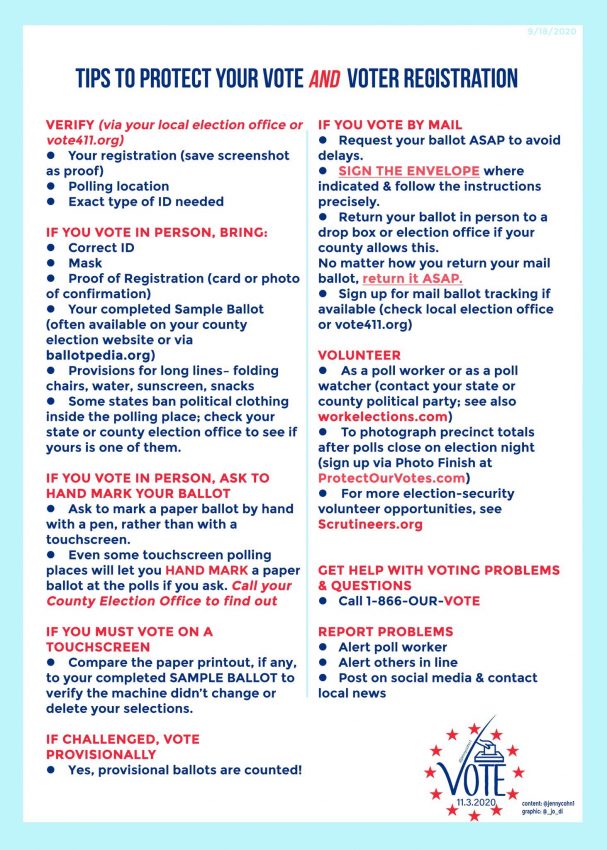



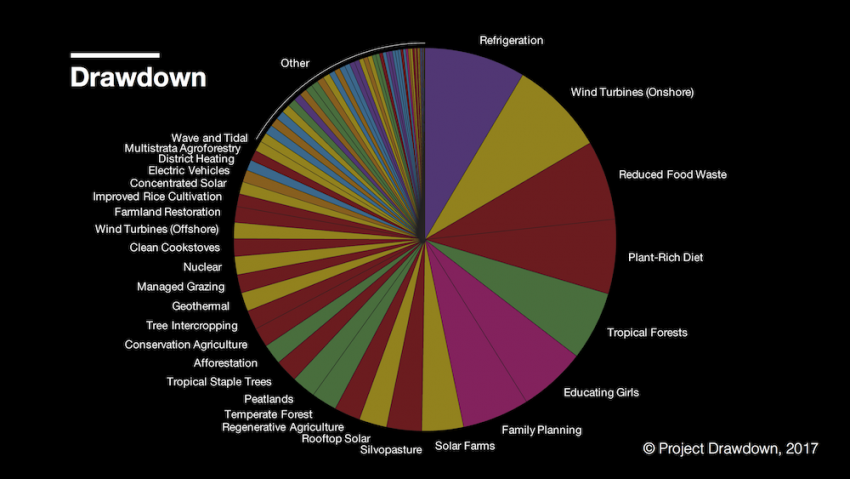
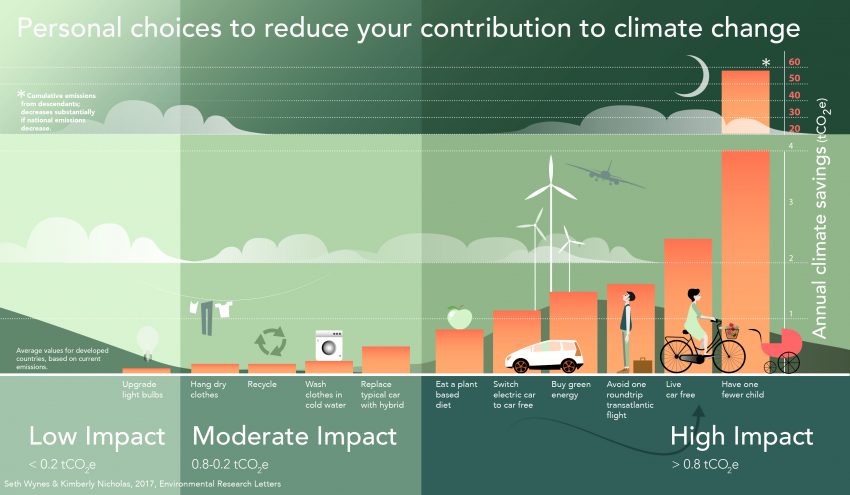
 The only thing that is truly certain in this life is that all of us will die. We don’t know when or how, but we do know that ultimately we cannot avoid death. Impermanence and death are inevitable, universal, and unavoidable parts of life.
The only thing that is truly certain in this life is that all of us will die. We don’t know when or how, but we do know that ultimately we cannot avoid death. Impermanence and death are inevitable, universal, and unavoidable parts of life.
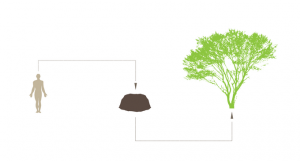


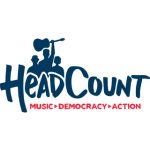
 A
A 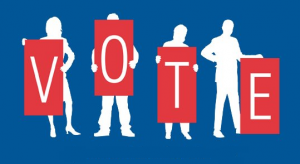

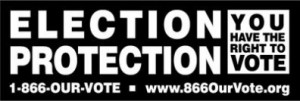 If you experience or witness any voting problems or irregularities, report them to the Election Protection hotline (1-866-OUR-VOTE, or 1-888-VE-Y-VOTA) and to your County elections office and your Secretary of State; you could also report the problems to the DNC, your state’s party, campaign headquarters, and/or to local media. If a poll worker tells you that your voter registration isn’t active or is incorrect in some way, please contact the 866-OUR-VOTE (866-687-8683) hotline before you give up and leave. Some states are wrongly purging some voters from the voter rolls, or your registration could have been hacked. (Notify Verified Voting if you have reason to believe your registration was hacked/altered.)
If you experience or witness any voting problems or irregularities, report them to the Election Protection hotline (1-866-OUR-VOTE, or 1-888-VE-Y-VOTA) and to your County elections office and your Secretary of State; you could also report the problems to the DNC, your state’s party, campaign headquarters, and/or to local media. If a poll worker tells you that your voter registration isn’t active or is incorrect in some way, please contact the 866-OUR-VOTE (866-687-8683) hotline before you give up and leave. Some states are wrongly purging some voters from the voter rolls, or your registration could have been hacked. (Notify Verified Voting if you have reason to believe your registration was hacked/altered.)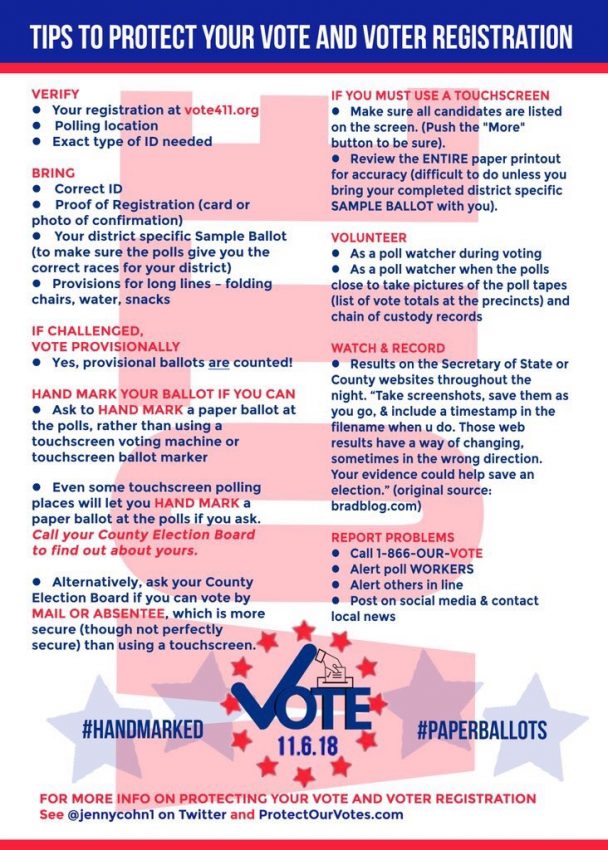
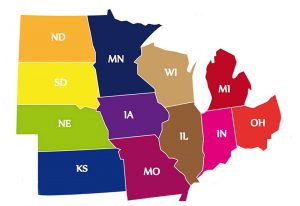


 MICHIGAN
MICHIGAN This is a listing of some enviro-relevant groups in Canada (though not all of them are focused solely on environmental issues). We’ve added more organizations to this listing over time.
This is a listing of some enviro-relevant groups in Canada (though not all of them are focused solely on environmental issues). We’ve added more organizations to this listing over time.